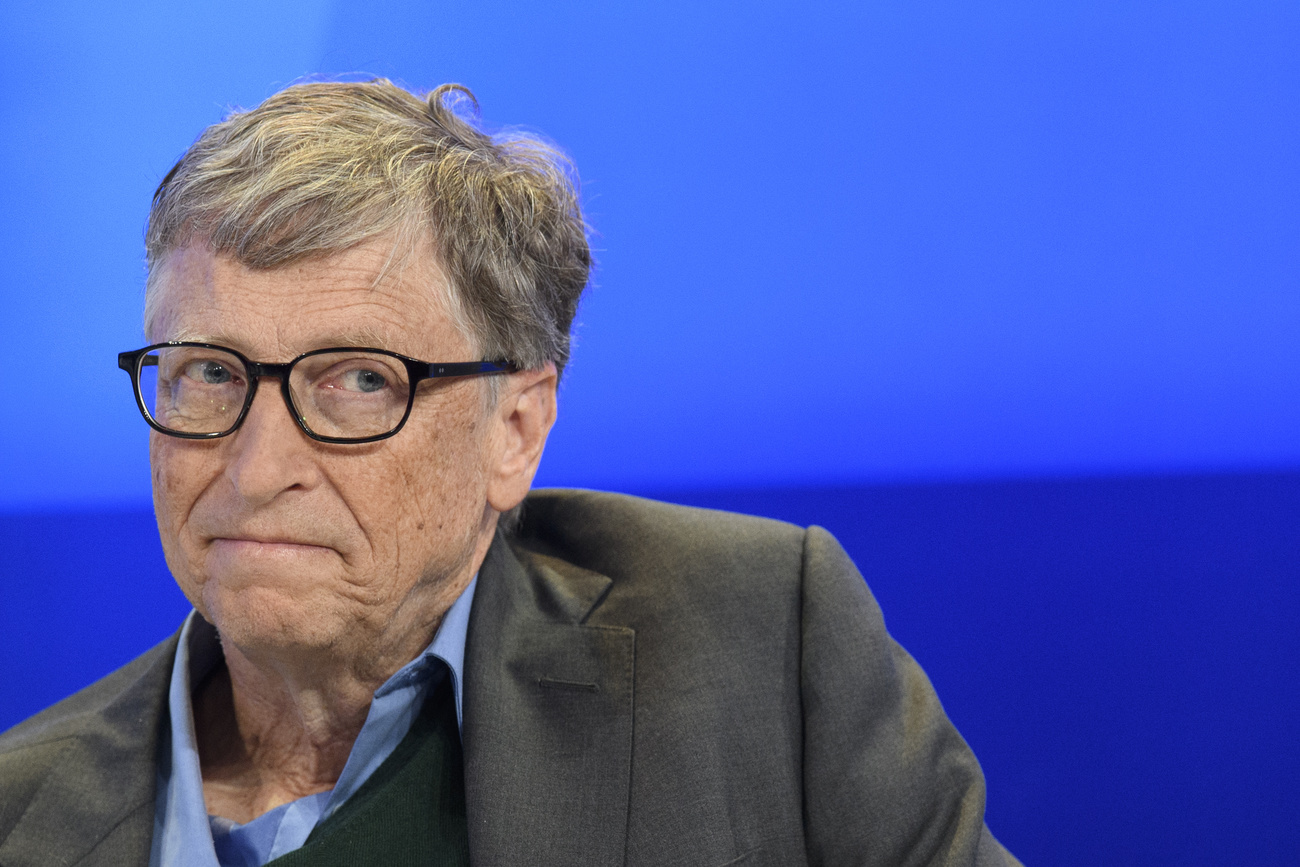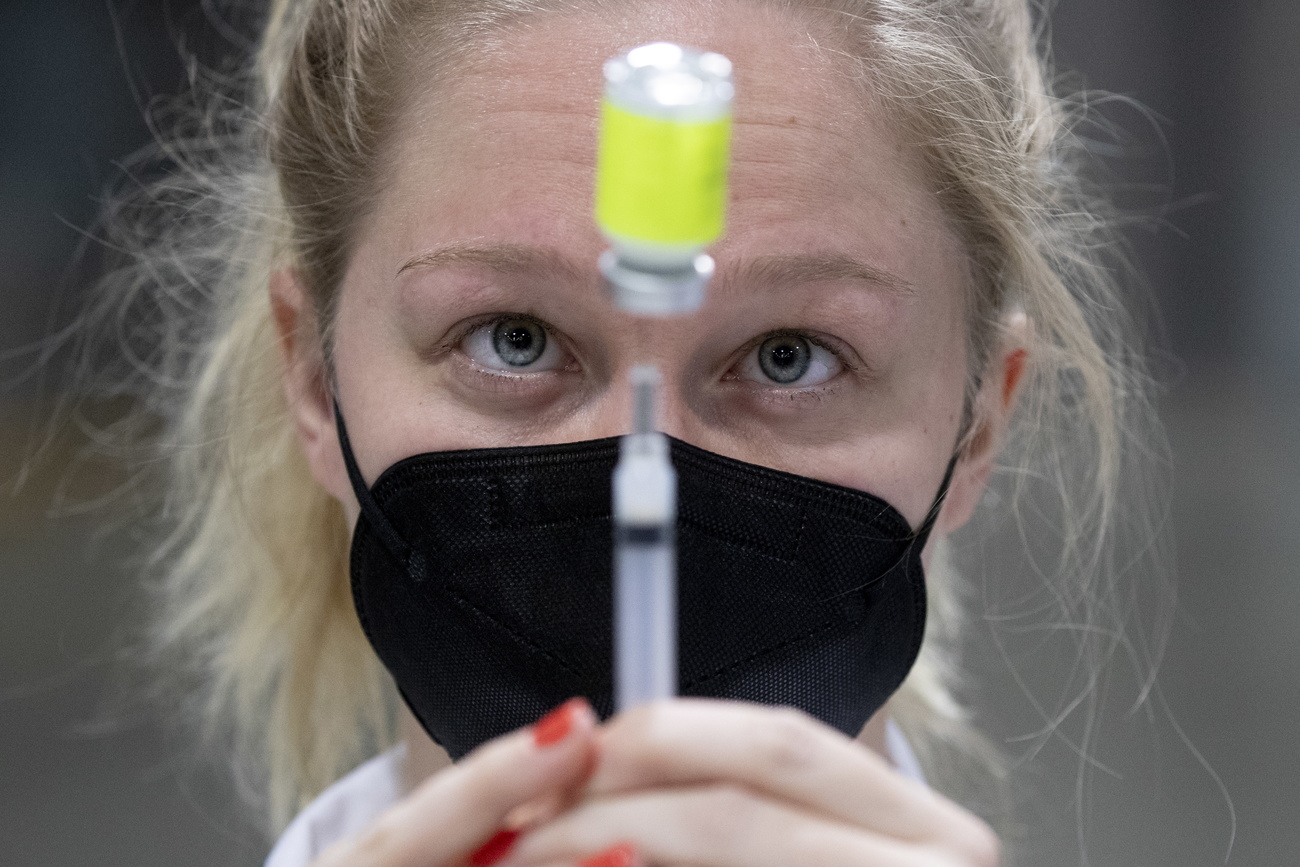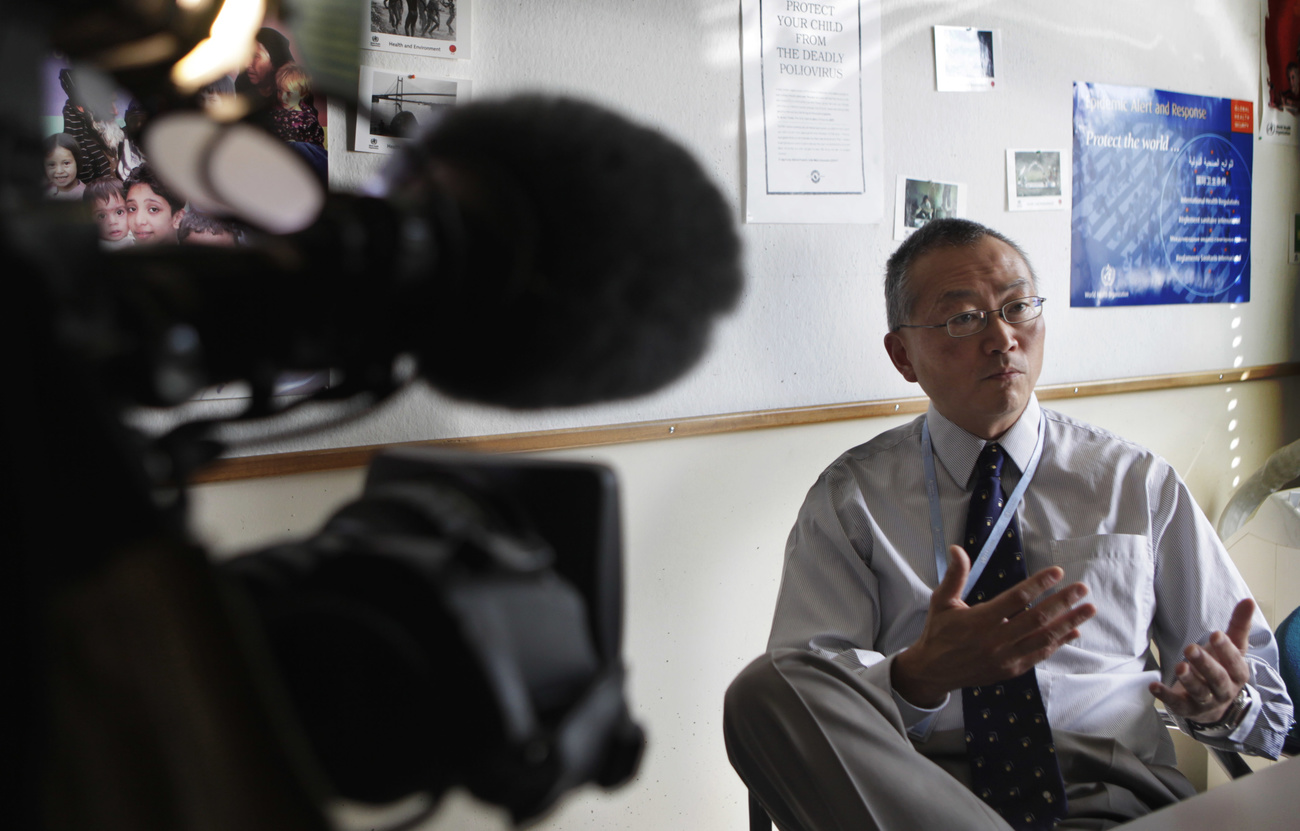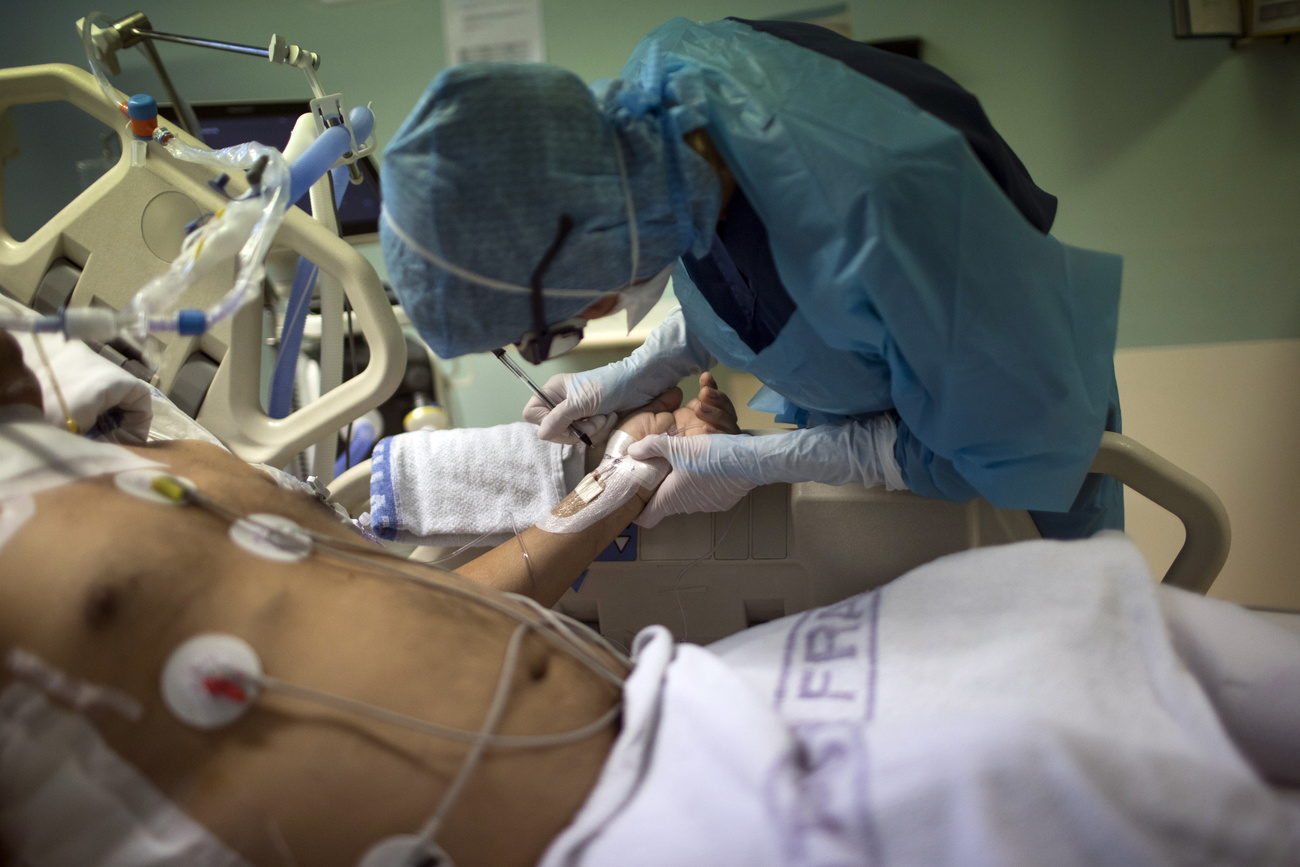Covid-19 focusses investors on global health priorities
The Covid-19 pandemic has not only been a hard blow for the global economy, it has also been a catalyst for investors to consider global health in their investment decisions. But the world needs more of such investors, a researcher at the Graduate Institute Geneva argues.
Announcing the establishment of the Council on the Economics of Health for All, World Health Organization (WHO) director general Tedros Adhanom Ghebreyesus said: “The time has come for a new narrative that sees health not as a cost, but an investment that is the foundation of productive, resilient and stable economies”.
A key issue for discussion around this year’s World Health Assembly (WHA) is funding of the COVAX scheme to share vaccines equitably. Aiming to deliver two billion doses by the end of 2021 – a lifeline for lower income countries – it remains underfunded and undersupplied. If we do not ensure global access to Covid-19 vaccines, a recent study found that the global economy will lose $9.2 trillion (CHF8.29 trillion), while the World Bank warns of 150 million more people falling into extreme poverty due to pandemic effects, the first rise in 20 years. Covid-19 has ruthlessly demonstrated systemic underfunding of health infrastructure such as critical care beds, elderly care facilities and our global healthcare workforce.
Pre-pandemic, the WHO estimated an annual $371 billion investment need to reach UN Sustainable Development Goals health targets (SDG3). This amount now seems tiny compared to the $9 trillion that central banks pumped in to support global economies last year – amounts that will constrain government budgets for years to come. Already, the UK government has responded by cutting overseas development aid while in Southern Europe, the impact of austerity due to the 2008 financial crisis had long-lasting negative effects on countries’ ability to respond to Covid-19. We must urgently come together and build bridges between International Geneva and the hubs of global finance to generate sustainable investment in global health.
Meanwhile, financial markets have been buoyed by government pandemic bailouts, and hopes that vaccines will pave the way to economic recovery. By the end of 2020, the world’s largest investment companies managed over $110 trillion, dwarfing the firepower of even the richest governments. These funds are increasingly being managed under responsible principles, integrating environmental, social and governance (ESG) concerns into the criteria for evaluating investee companies. Corporate leaders are also being held accountable by shareholders for their delivery on more than purely financial results. Conventional wisdom in financial circles is that the new generation of investors and employees will stand for nothing less, and senior leaders of global investment firms are listening.
Until the pandemic, global health was not an explicit focus for sustainable investment, despite calls to include metrics grounded in SDG3 into expanded “ESG+H” – “H” for health – criteria. Covid-19 has changed this. In February, 150 investment firms managing $14 trillion of assets, issued a joint call for a “fair and equitable global response to the pandemic” encouraging governments to finance the WHO-led ACT-Accelerator for equitable access to new Covid-19 diagnostics, therapeutics and vaccines. They engaged directly with healthcare companies, encouraging them to accelerate R&D, expand production and use mechanisms such as voluntary licensing and cross-industry partnerships to expand vaccine production.
Considering that governments are significant investors in vaccine development and advance purchase agreements, the profiteering by executives at five firms funded by Operation Warp Speed in the United States has been perceived as extraordinarily insensitive. Reports found that the managers in question had sold their companies’ stock, earning themselves more than $250 million last year before the vaccines had even been approved. This culminated in the recent investor rebellion at the Astra Zeneca annual meeting where 40% of shareholders, including large global institutions, voted against the CEO’s increased remuneration and the industry association issued a warning.
Apart from funding, investors therefore have two additional stewardship roles to play, guided by ESG+H principles: firstly, engaging corporate boards and executives with global health priorities; secondly, making proposals and voting at shareholder meetings as a form of check and balance. Some investment firms do extremely detailed work to engage with investee companies and ensure voting practices are in line with their clients’ values. However, in the US, the Securities and Exchange Commission is concerned that with increasing concentration of share ownership by a few very large firms, individual and passive investors voices are not adequately heard.
The word “investor” may conjure up images of elite high finance, but investors are actually many of us. Apart from the savings and wealth of the fortunate, any of us who have been employed have probably had some salary put aside each month in a pension. These pensions are invested all around the world by institutional investors on our behalf, although details of which companies we individually own are typically not disclosed beyond country and sector level. Shareholders make their voices heard through the voting decisions of these institutions acting as our proxy. Going forward we need more transparent channels to open the feedback loop from individual shareholders to the investment firms that manage our pensions.
Deep pockets come with unparalleled global influence. The largest investment firms have enormous soft power – a direct line to CEOs and policy makers all over the world. While some may find this idea sinister, with appropriate stewardship, investors that look beyond individual companies, sectors or countries, can play a positive role in improving access to medicines. Civil society, global health actors, academia and business, have entrenched positions around how to see medicines made affordable and available, and differ on where to apportion blame when profits get in the way. Investors get their share of blame too. In a recent example, the pharmaceutical industry association (IFPMA) invoked investor expectations in order to reject US support for a temporary waiver on intellectual property rights for Covid-19 vaccines. However, in a message shared since April 2020, investors have underlined that the pandemic is not time for business as usual, reassuring investee companies that they are prepared to leave money on the table for pandemic response.
This message needs to be made clearer and shouted louder so that the investment community contributes to delivering Dr Tedros’ goal of “a new way forward that ensures health is at the heart of all government action and investment decisions. We must value and invest in health as our most important commodity.”
Covid-19 has ruthlessly shown us that global health investment is an essential part of building the world’s resilient future; the stewards of our retirement savings also have their role to play.
The views expressed in this article are solely those of the author, and do not necessarily reflect the views of SWI swissinfo.ch.
swissinfo.ch publishes op-ed articles by contributors writing on a wide range of topics – Swiss issues or those that impact Switzerland. The selection of articles presents a diversity of opinions designed to enrich the debate on the issues discussed. If you would like to submit an idea for an opinion piece, please e-mail english@swissinfo.ch

In compliance with the JTI standards
More: SWI swissinfo.ch certified by the Journalism Trust Initiative
















You can find an overview of ongoing debates with our journalists here . Please join us!
If you want to start a conversation about a topic raised in this article or want to report factual errors, email us at english@swissinfo.ch.